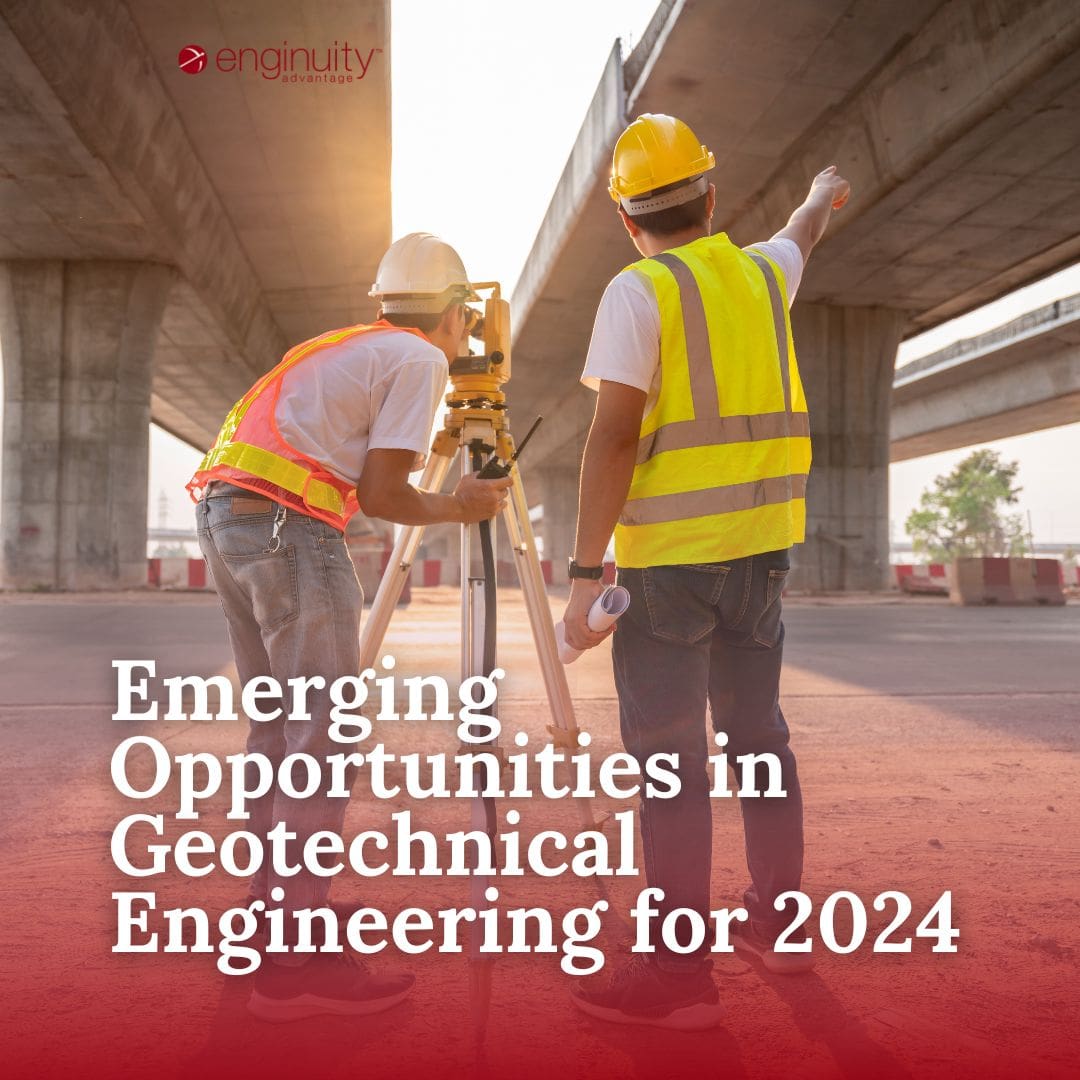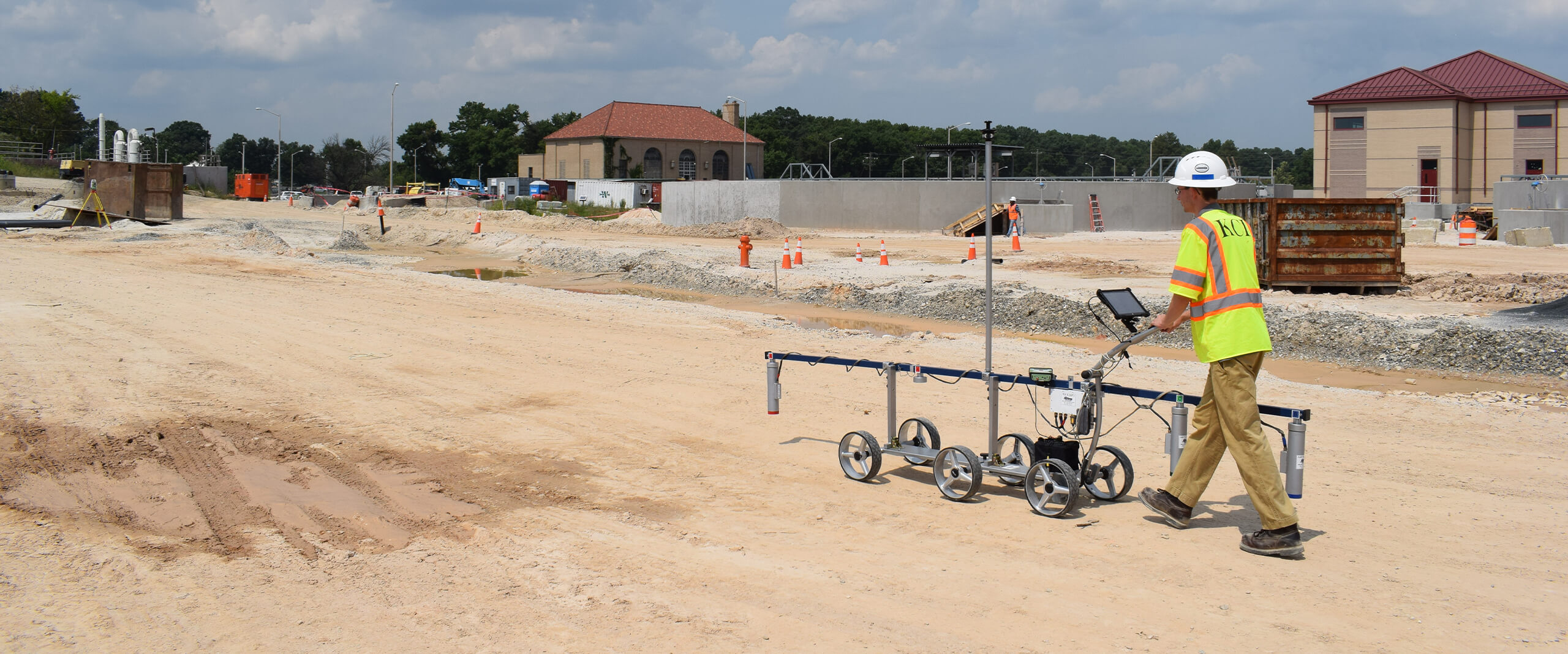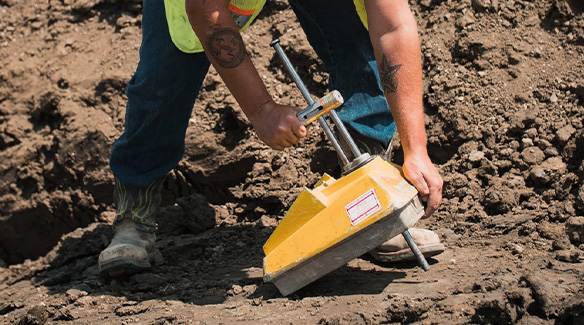Why Working With a Geo Tech Engineer is Crucial for Complicated Construction Jobs
Why Working With a Geo Tech Engineer is Crucial for Complicated Construction Jobs
Blog Article
Understanding the Essential Role of the Geotechnical Industry in Modern Construction Projects and Facilities Growth
The geotechnical market is a cornerstone of modern building and infrastructure growth, supplying important insights right into soil actions that straight affect job outcomes. With innovative dirt assessments and cutting-edge engineering remedies, geotechnical professionals not just make certain structural stability however likewise address sustainability issues amidst advancing ecological criteria. As framework needs grow and new challenges arise, the value of this area becomes increasingly noticeable. What ramifications might these developments have for future tasks and the general security of our developed setting?
Significance of Soil Evaluation
Dirt analysis plays a vital function in the geotechnical industry, acting as the foundation for informed decision-making in building and construction projects. Exact soil evaluation is crucial for establishing the suitability of a site for various kinds of frameworks, including domestic homes, industrial buildings, and bridges. By assessing soil structure, density, strength, and moisture material, designers can expect potential challenges and mitigate dangers related to ground instability, erosion, and negotiation.
The analysis procedure normally entails a collection of examinations and observations that supply essential details about the subsurface conditions. This information informs the style and building processes, making certain that structures are constructed on strong ground with ample support. Furthermore, recognizing the soil profile allows engineers to pick suitable building and construction methods and products, maximizing resource application and lessening prices.
Along with ensuring structural honesty, soil evaluation adds to ecological sustainability. By determining potential contamination or adverse results on bordering communities, engineers can carry out methods to secure these all-natural sources. On the whole, comprehensive soil analysis is important in the geotechnical area, underpinning the safety and security, efficiency, and ecological responsibility of building and construction tasks.
Trick Geotechnical Strategies
A variety of essential geotechnical methods are used to analyze and enhance the security and performance of building and construction websites. One foundational approach is dirt sampling and testing, which permits engineers to figure out the chemical and physical homes of the ground. This details is essential for making notified choices regarding foundation layout and building approaches.
Another necessary method is site characterization, which involves the detailed analysis of dirt and rock problems with techniques such as borehole exploration and in-situ testing. Methods like Standard Penetration Examinations (SPT) and Cone Penetration Examinations (CPT) offer beneficial information on soil strength and stratigraphy.
Ground renovation techniques, such as soil stabilization and grouting, are likewise vital in boosting the load-bearing capability of weak soils. These methods can minimize negotiation and boost general site conditions.
In addition, slope stability evaluation is important for identifying prospective landslide threats and guaranteeing the security of excavations. This evaluation often utilizes mathematical modeling and limit balance approaches to forecast soil actions under numerous conditions.
Incorporating these geotechnical methods into building preparation not just optimizes job results yet also makes certain the long-lasting sustainability of framework growth.
Influence on Building Safety And Security

In addition, efficient geotechnical engineering special info involves executing reduction approaches for recognized dangers. This might include dirt stablizing methods, preserving frameworks, or drain systems to minimize hydrostatic stress. By dealing with these aspects, building groups can lower the chance of mishaps and improve worker safety.
Additionally, constant tracking of site problems is essential throughout building and construction. Geotechnical tools can supply real-time data regarding ground motion and security, enabling prompt interventions when required.
Essentially, the geotechnical industry plays an essential duty in securing building jobs. By prioritizing ground stability and employing rigorous assessment techniques, the geotechnical industry not just secures the workforce yet also adds to the durability and dependability of built facilities.
Sustainability in Geotechnical Practices

In addition, geotechnical designers are currently using innovative innovations, such as geosynthetics, which boost dirt security while reducing the quantity of material required. This not only preserves resources however also causes much less waste generation (consulting engineer). The combination of sustainable style principles into geotechnical engineering urges making use of renewable resource sources in building procedures, further minimizing carbon exhausts
By performing these assessments, geotechnical professionals can develop strategies that reduce negative results, guaranteeing compliance with ecological regulations. On the whole, the focus on sustainability within geotechnical techniques not only contributes to the durability and resilience of infrastructure yet likewise advertises a responsible strategy to land and resource monitoring.
Future Trends in Geotechnical Engineering
Development is driving the future of geotechnical engineering, as arising methods and innovations reshape the market. The integration of advanced information analytics and artificial intelligence is established to reinvent site examination and threat assessment, allowing engineers to make more informed choices based on real-time information. Moreover, the usage of geosynthetic products is obtaining traction, providing sustainable options that boost soil security and minimize environmental influence.
One more considerable pattern is the adoption of automated and robot systems for tracking and building procedures. These modern technologies not only enhance precision yet likewise improve safety and security by reducing human participation in dangerous settings. Additionally, the implementation of Structure Info Modeling (BIM) in geotechnical design facilitates enhanced collaboration among stakeholders, maximizing task delivery and lowering expenses.
As environment modification postures new challenges, the sector is significantly concentrating on durability and flexibility in style practices, ensuring facilities can hold up against severe weather occasions. The ongoing fad towards sustainability will drive innovation in green materials and approaches, aligning geotechnical design with wider environmental objectives. Collectively, these trends will shape an extra efficient, sustainable, and durable geotechnical landscape for future projects.
Conclusion

The geotechnical sector is a foundation of contemporary building and construction and framework growth, supplying critical insights into soil behavior that straight influence task outcomes. engineer of record.Soil assessment plays content a crucial role in the geotechnical sector, offering as the structure for notified decision-making in building and construction tasks. Generally, comprehensive soil evaluation is essential in the geotechnical field, underpinning the security, effectiveness, and ecological responsibility of building tasks
Building safety and security is dramatically influenced by geotechnical techniques, as the security and stability of the ground directly impact the overall safety of a construction site.In verdict, the geotechnical industry is vital in modern-day building and framework advancement, offering essential assessments that guarantee structural stability and security.
Report this page